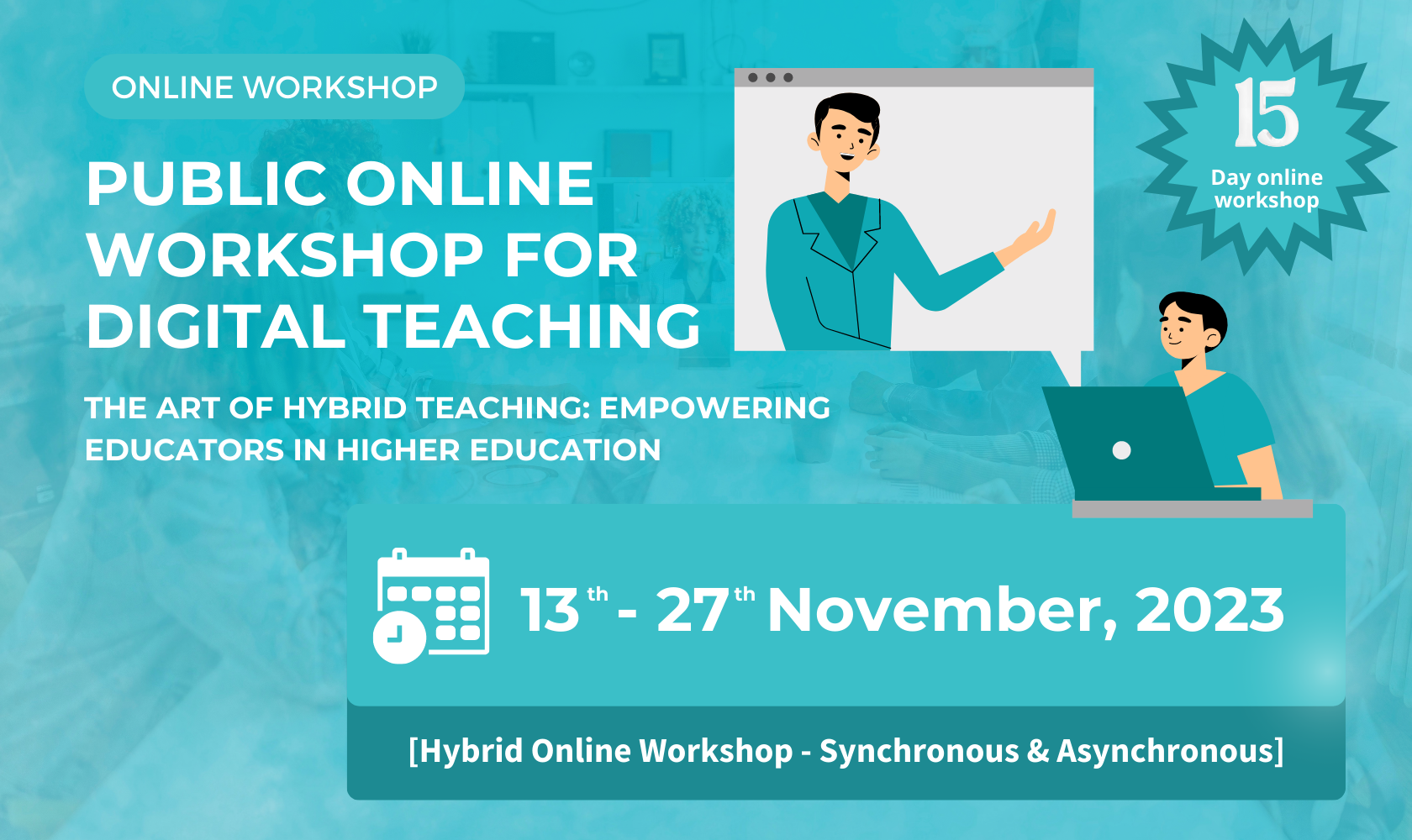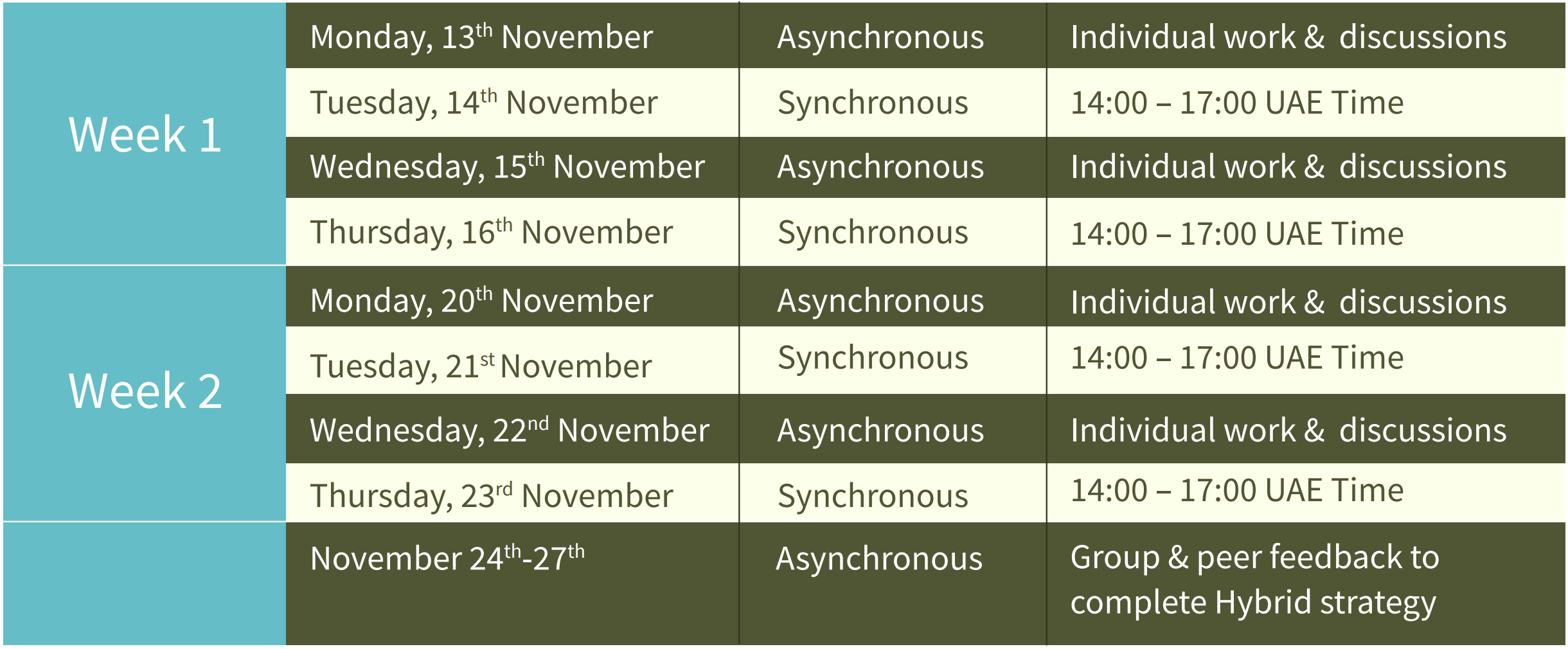
Reflect on the individual impact you wish to have as a digital educator.
Discuss the fundamental virtues, challenges, and opportunities of face-to-face,hybrid, and digital teaching modalities.
Module 1: Workshop overview
Module 2: Finding Yourself in the Digital and Hybrid Teaching Space
Module 3: Designing Your Hybrid Teaching Strategy Step-by-Step
Module 4: My Professional Development Plan
The learning dynamics in this workshop are unique. First, all the work is focused on completing a final product: a preliminary strategy to transform an existing face-to-face course into a hybrid course . Second, facilitated asynchronous activities play a primary role in preparation for the highly interactive and practical synchronous sessions. The two types of activities are further described below:
Asynchronous Independent and Group Learning Activities : These activities are essential to learning and must be completed before participating in the live synchronous sessions. Independent asynchronous activities include self-paced tutorials, assessments, diagnostic exercises, and reviewing resources, such as websites, videos, or documents. Participants will also be interacting with each other in smaller teams. Teams provide an opportunity to share, receive and provide feedback among participants. Discussion forums will promote ongoing interactions throughout the workshop, including all the participants and facilitators. The asynchronous collaboration remains active throughout the last day of the workshop, providing ample opportunities to offer and receive feedback for the individual hybrid strategies. Full participation is expected.
Synchronous Activities : The workshop includes four three-hour synchronous sessions via videoconference. The synchronous sessions are predominantly practical and applied. There will be demonstrations, case analysis, problem-solving, small and whole group activities, questions & answers, and reflective exercises. All activities are designed to help participants work through every stage of the hybrid strategy they are expected to complete by the end of the workshop.

The Workshop uses a set of tools and resources that will facilitate your learning process. The tools available in the Orientation Module are:


Date : 13th – 27th November, 2023
Group registration of 3 to 9 (Early bird) : $650 per Person
Individual registration of 3 to 5 (Regular) : $850 per Person
(For groups of 6 and above, please contact us at in*******@cl*****.com)
Venue

15 Days (28 Learning Hours)
WhatsApp us